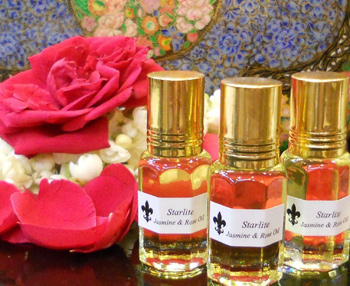Brands that sell skin care products use various marketing tactics, making it hard to make a well-informed choice.
The skin is the largest organ you have, so this is an important decision. Vegan, hypoallergenic products will be more beneficial to your health. Because many products are marketed as all natural, you’ll need to check out the ingredients before determining if a product is truly hypoallergenic.
The best skin care products will focus on skin barrier optimization by replacing essential skin lipids. To put it simply, these products help your skin to repair and heal itself. Read labels carefully and educate yourself on what to look for.
The Best Skin Care products will not contain the following Chemicals:
Essential Oils
Essential oils are part of aromatherapy, which many brands have intertwined with skin care products. Although these oils are derived directly from plants, they can be irritating to those with sensitive skin or conditions such as eczema.
Many skin care products won’t list the actual plant ingredients, which is the heart of the problem. For example, peppermint, while pleasant to smell, can cause inflammation. Cinnamon, ginger, lemon and pine are also likely to cause inflammation.

Sulfates
Sulfates in beauty products come in the form of sodium lauryl sulfate and sodium laureth sulfate. These are detergents that are responsible for the lather that we’re used to seeing when washing. Because being clean has so long been associated with a good lather, it’s hard to separate the two.
However, sulfates cause dry skin. They will also aggravate skin conditions such as rosacea, as this Livestrong article discusses. They can also be responsible for hives.
Sunflower or Olive Oil
While oils are natural moisturizers, the same properties that moisturize can trap dirt and bacteria on the skin. This causes pores to clog, which can lead to acne.
The Mayo Clinic also advises anyone allergic to beta-carotene to avoid sunflower oil. While Olive oil has been accredited with being the best oil for your heart in regards to consumption, topically it can do more damage than good. It’s best to leave the Olive oil on your salad!
Gluten
Gluten is a protein found in grains such as wheat, rye and barley. Those that suffer with Celiac Disease have a negative reaction when they consume products containing gluten. Others may suffer from gluten intolerance, which is less severe but still uncomfortable.
Although studies are inconclusive, many of those with Celiac Disease or gluten intolerance will also choose skin care products without gluten. The reasoning is simple: if you touch your hair or moisturize your hands and then eat, you’ll risk ingesting gluten.
The biggest gluten-containing culprits in the skincare world are oatmeal-based products.
Alcohol
Alcohol is used in many skin care products because it allows for quick drying. It’s also quick to dry out your skin. Alcohol breaks the skin’s natural moisture barrier and creates a need for more product. The dryness can also lead to irritation and itchiness.
When reading ingredients, be on the lookout for products that contain ethanol.
Petroleum By-Products
Mineral oil, glycol and dipropylene are examples of petroleum by-products. These are all known to clog pores and trigger acne. Those who suffer from skin conditions such as eczema will also find them irritating.
Panthenol
This chemical can be a sneaky one, as it is commonly mixed with petroleum by-products in skin care products. Because of that, products with this chemical are also known to clog pores.
By avoiding these seven chemicals, you’ll enjoy skin that’s healthy and smooth for a long time.
Eberting is a board certified dermatologist who has dedicated her career to research and treatment of skin ailments. She writes regularly at cherylleemd.com



